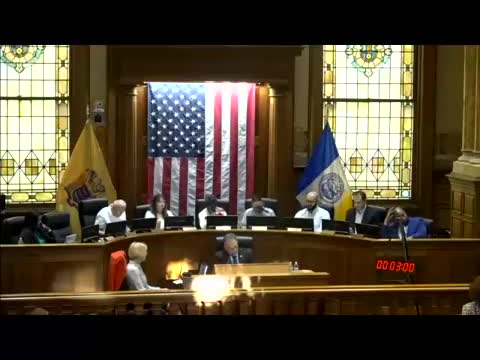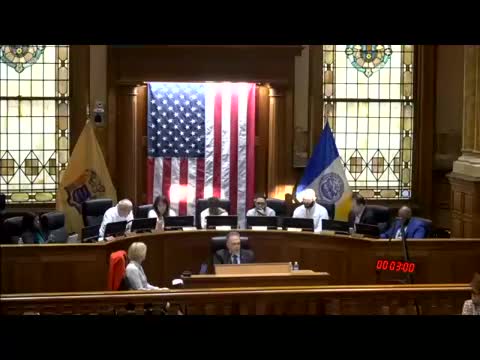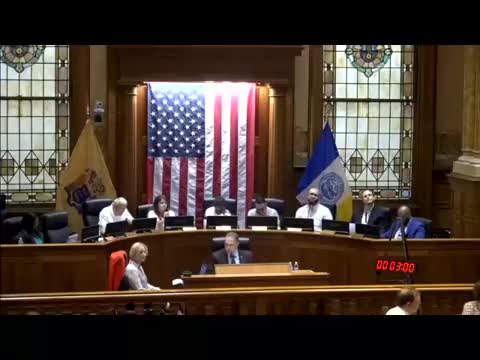Article not found
This article is no longer available. But don't worry—we've gathered other articles that discuss the same topic.

Votes at a glance: key ordinances and resolutions from the April 23, 2025 Jersey City Municipal Council meeting

Residents urge council to cancel Israeli flag‑raising at City Hall amid Gaza violence; council does not vote to cancel

Council adopts ordinance requiring certain prior approvals for construction permits, ties permits to payroll‑tax compliance

Tenants press council after years of alleged code violations at Portside Towers; city enforcement action begins

